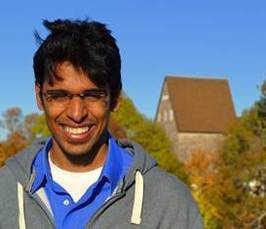COLLECTIVE COMPUTATION ACROSS SCALES OF BIOLOGICAL ORGANISATION
Doctoral defense by Vivek Sridhar
- Date: Mar 29, 2021
- Time: 03:00 PM - 05:30 PM (Local Time Germany)
- Speaker: Vivek Hari Sridhar
- Location: Online

"Biological systems—from cells to tissues to individuals to societies—are hierarchically organised,
which suggests there are multiple natural scale at which these systems should be studied. Across
disciplines (e.g. neurobiology, genetics, evolutionary biology), biologists often focus on isolating a
single scale and understanding the patterns observed at this level of the hierarchy. While the task of
understanding observed patterns in nature requires revealing the mechanisms that underlie them,
these mechanisms generally operate at a different scale than the observed pattern itself. In many
cases, the patterns must be studied as emerging from interactions among a collection of smaller
units. However, in other cases, they are imposed upon the system by larger scale constraints. For
example, a compass-like representation of landmarks in the fruit fly brain is only observable at a
larger scale by coarse-graining the neural firing rates; gradient tracking in fish schools emerges from
individuals responding to local resource levels; natural selection on phenotypic traits is constrained
by the species’ evolutionary history and other environmental factors. In all examples, spatially and
temporally distributed information is captured at the system level and translated to some
behavioural output. In this thesis, I explore the link between the different scales of biological
organisation, and the idea that hierarchical organisation allows these systems to maximise
information extraction across space and time."
-extracted from the summary of Vivek's thesis.